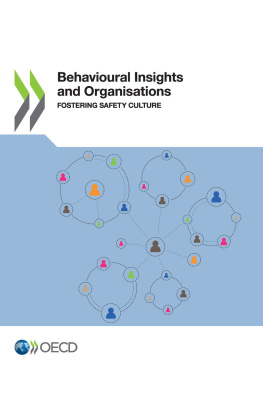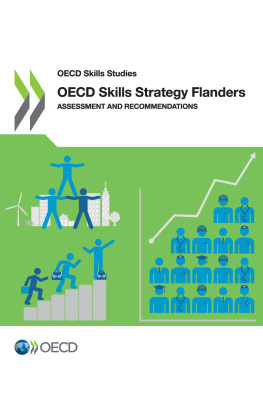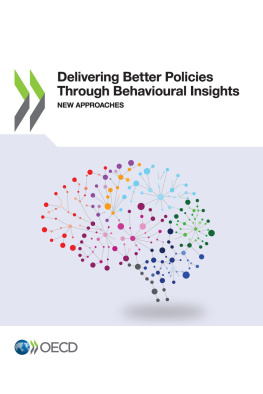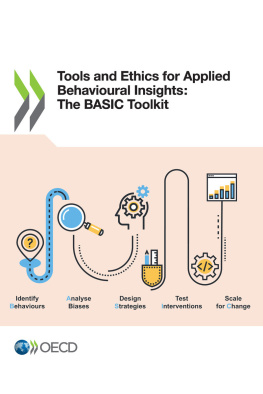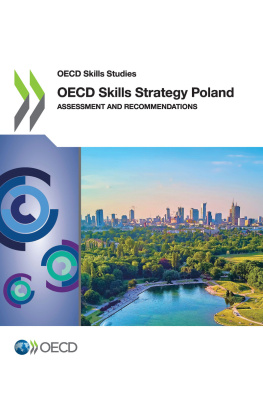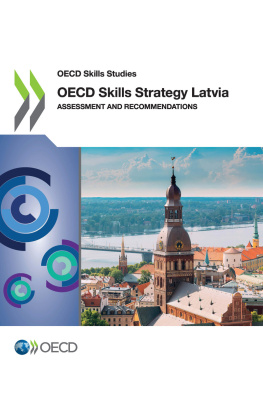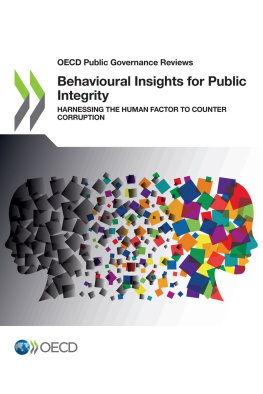OECD - Behavioural Insights and Organisations
Here you can read online OECD - Behavioural Insights and Organisations full text of the book (entire story) in english for free. Download pdf and epub, get meaning, cover and reviews about this ebook. year: 2020, publisher: OECD Publishing, genre: Politics. Description of the work, (preface) as well as reviews are available. Best literature library LitArk.com created for fans of good reading and offers a wide selection of genres:
Romance novel
Science fiction
Adventure
Detective
Science
History
Home and family
Prose
Art
Politics
Computer
Non-fiction
Religion
Business
Children
Humor
Choose a favorite category and find really read worthwhile books. Enjoy immersion in the world of imagination, feel the emotions of the characters or learn something new for yourself, make an fascinating discovery.
Behavioural Insights and Organisations: summary, description and annotation
We offer to read an annotation, description, summary or preface (depends on what the author of the book "Behavioural Insights and Organisations" wrote himself). If you haven't found the necessary information about the book — write in the comments, we will try to find it.
OECD: author's other books
Who wrote Behavioural Insights and Organisations? Find out the surname, the name of the author of the book and a list of all author's works by series.
Behavioural Insights and Organisations — read online for free the complete book (whole text) full work
Below is the text of the book, divided by pages. System saving the place of the last page read, allows you to conveniently read the book "Behavioural Insights and Organisations" online for free, without having to search again every time where you left off. Put a bookmark, and you can go to the page where you finished reading at any time.
Font size:
Interval:
Bookmark:
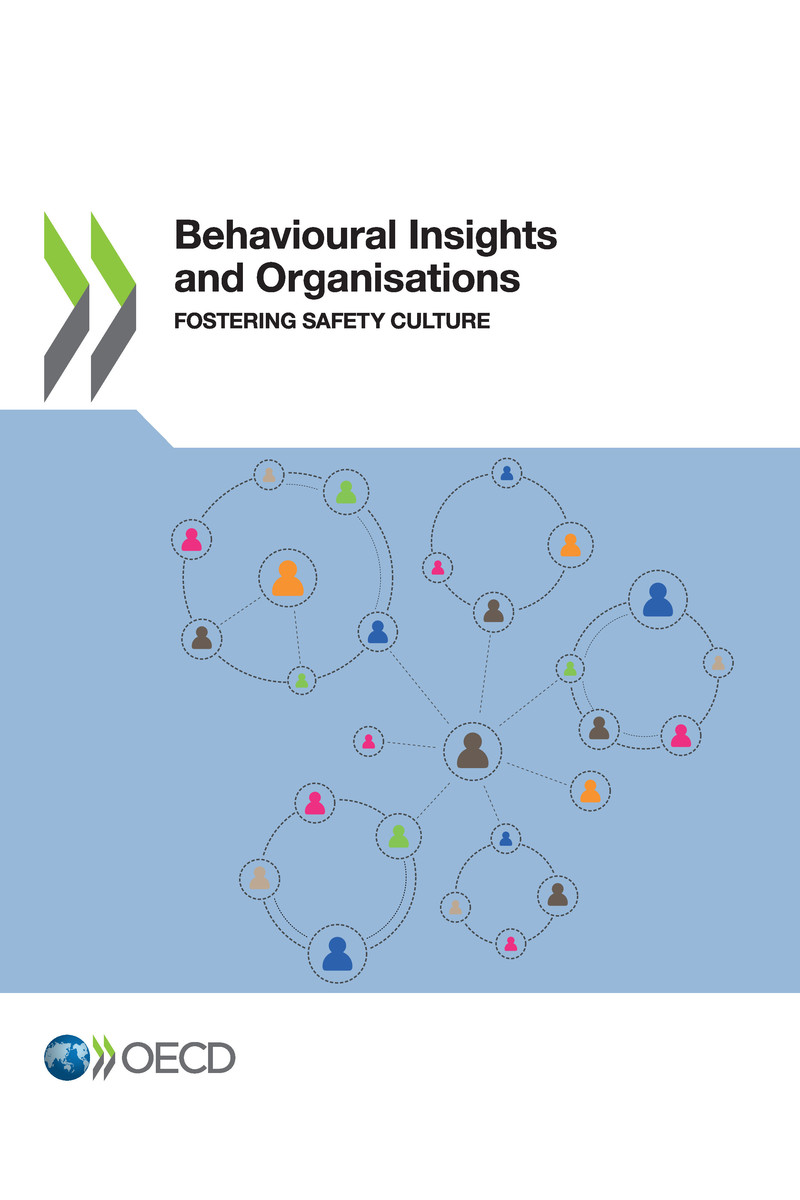
OECD (2020), Behavioural Insights and Organisations: Fostering Safety Culture , OECD Publishing, Paris, https://doi.org/10.1787/e6ef217d-en .
For over a decade, policy makers around the world have used behavioural insights (BI) to understand how human behaviour influences policy outcomes. The majority of these applications have been concerned with improving policy implementation and changing individual behaviour; however, many policy areas are also affected by the behaviour of organisations. Can policy makers use BI to change the behaviour of organisations to improve the outcomes of policies and regulations, and promote good governance overall?
This report brings together work on applying BI to foster a safety culture in regulators and regulated entities in the energy sector and is intended to serve as a reference for future safety culture research, a field in which BI has been underutilised. The data presented in this report is grounded in an Industrial-Organisational Psychology model that suggests organisations can be influenced through the individuals within them.
The report assembles several pieces of evidence on safety culture conducted since 2017 and led by the OECD Network of Economic Regulators (NER), including experiments with regulators from Canada, Ireland, Mexico and Oman. The conclusions of that work including the initial comparative results of the safety culture experiments were presented in the 2019 OECD publication Delivering Better Policies Through Behavioural Insights: New Approaches. This report expands upon those results by presenting more detailed country-level data.
While there is no concise internationally agreed upon definition of safety culture, at its core, it is about the organisations values, beliefs, norms, practices, competencies and behaviours related to safety. Regulators have found clear evidence that many high-profile incidents have occurred at least in part due to poor organisational behaviour, including poor safety culture. Regulators have a role to play in advancing safety culture both in their own organisation and in the regulated entities they oversee. This includes understanding organisational behaviour and safety culture, as well as the behavioural barriers and opportunities for changing elements of safety culture.
The research and frontier experiments underlying the report demonstrate the value of regulators exploring new, behaviourally informed strategies to address safety culture. The variation in responses within and among countries highlights the importance of using tailored applications of BI concepts and methodology. The guidance chapter that begins this report highlights lessons learned using each of the behavioural insights tested in the context of safety culture to support policy makers in tailoring their approaches in the future.
This report is part of the OECD work programme on embedding behavioural insights into regulatory frameworks and their delivery, led by the NER and the OECD Regulatory Policy Committee (RPC), with the support of the Regulatory Policy Division of the OECD Directorate of Public Governance. The Directorates mission is to help government at all levels design and implement strategic, evidence-based and innovative policies that support sustainable economic and social development.
The overall report was prepared by James Drummond and Anna Pietikainen, under the direction and support of Marcos Bonturi, Director, and Nick Malyshev, Head of the Regulatory Policy Division, Public Governance Directorate. The work underlying the report was originally begun by Filippo Cavassini and Faisal Naru, with contributions from Shelly Hsieh. Jennifer Stein edited and prepared the report for publication, and editorial support was provided by Andrea Uhrhammer.
The Secretariat worked with a team of behavioural scientists who designed the experiments and drafted various chapters and sections (see below). An academic panel of Dr. John Beshears, Harvard University, Dr. Tom Reader, London School of Economics, and Dr. Severine Trouassaert. London School of Economics and Oxford University also provided support and feedback throughout the project.
The Secretariat is grateful for comments provided by a number of colleagues from participating countries and would like to acknowledge their contributions. Thanks are extended to Claudine Bradley, Melissa Mathieson, and Natasha Scott, Canada Energy Regulator (CER), and Christine Siminowski, Natural Resources Canada, Canada; Ann McGarry and Ashleigh Shaheen, Commission for the Regulation of Utilities (CRU), Ireland; Adriana Lpez Alba Gmez and Daniel Ernesto Benet Sanchez, Agency for Safety, Energy and Environment (Agencia de Seguridad, Energa y Ambiente, ASEA), Mexico; and Ibrahim Al Harti and Qais Al Zakwani, Authority for Electricity Regulation (AER), Oman.
The report was peer-reviewed internally at the Public Governance Directorate by Janos Bertok, Acting Director, and Jack Radisch, Senior Policy Analyst, Risk Management, Governance Reviews and Partnerships Division. Thanks are also extended to Filippo Cavassini and Francesca Papa, Economics Directorate, and Faisal Naru and Jun Nakagawa, Executive Directorate, for their comments on the final draft of the report.
The Secretariat would like to acknowledge the contributors to each chapter of this report:
Overall experimental design was created and implemented by Mary MacLennan, behavioural science consultant and former member of the Impact and Innovation Unit, Canada, supported by Dr Morgan Tear, Research Fellow, London School of Economics and BehaviourWorks Australia at Monash University and Dr Tom Reader, London School of Economics, with input and support from Faisal Naru and Filippo Cavassini. Phase 2 experimental design was created and implemented by Daniel Shephard, PhD Candidate, Colombia University and former member of the Social and Behavioural Sciences Team, United States, building on the initial experimental design and in co-ordination with Mary MacLennan, with inputs and support from Faisal Naru and Filippo Cavassini.
Chapter 1 (overview) was written by James Drummond and Daniel Shephard, with inputs from Anna Pietikainen, Mary MacLennan and Morgan Tear. A preliminary version was shared with project partners in November 2019, and with NER delegates in February 2020.
Chapter 2 (theoretical background) was written by Lori Foster, Professor of Psychology, North Carolina State University, Head of Behavioural Science, Pymetrics, and former member of the White House Social and Behavioural Team, in support of the EC-OECD Seminar Series on Designing Better Economic Development Policies for Regions and Cities, Seminar on Behavioural Insights and Organisational Behaviour (10 May 2017), and funded by the European Commission Directorate-General for Regional and Urban Policy (DG REGIO). An abridged version of this chapter was included in the 2018 OECD publication Rethinking Regional Development Policy-making .
Font size:
Interval:
Bookmark:
Similar books «Behavioural Insights and Organisations»
Look at similar books to Behavioural Insights and Organisations. We have selected literature similar in name and meaning in the hope of providing readers with more options to find new, interesting, not yet read works.
Discussion, reviews of the book Behavioural Insights and Organisations and just readers' own opinions. Leave your comments, write what you think about the work, its meaning or the main characters. Specify what exactly you liked and what you didn't like, and why you think so.

